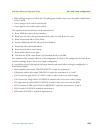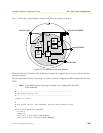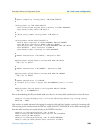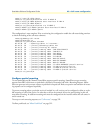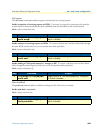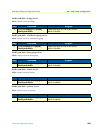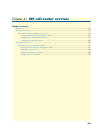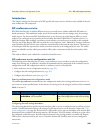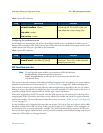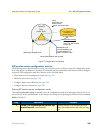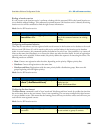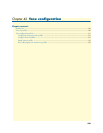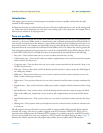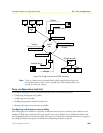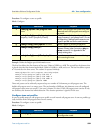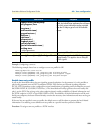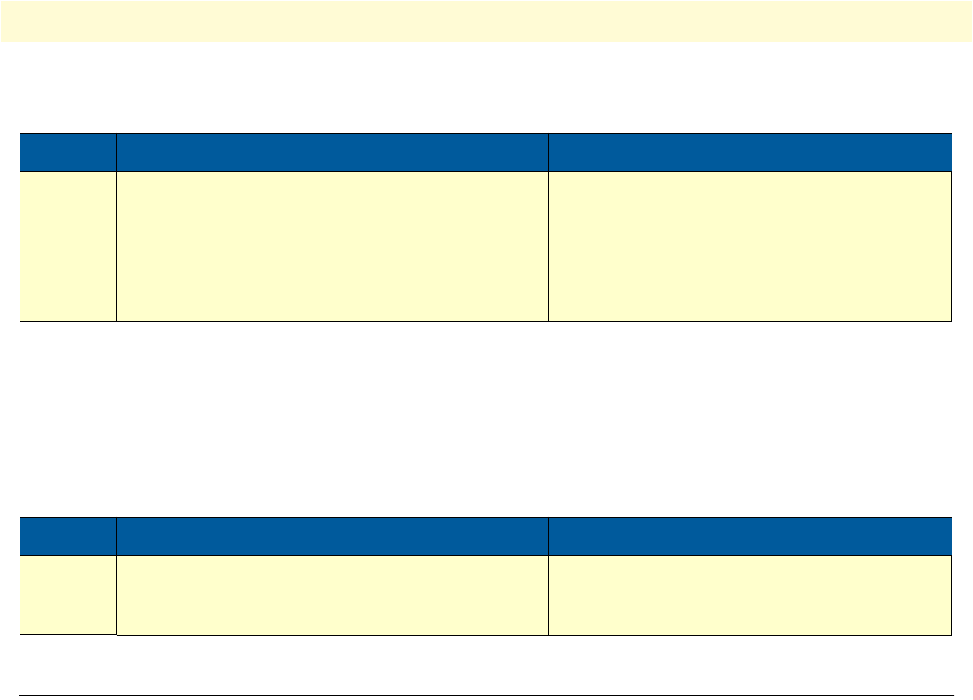
SIP location-service 526
SmartWare Software Configuration Guide 41 • SIP call-router services
Mode: Service SIP conference
Configuring the conference server
As described in the introduction, one of the responsibilities of this service is to build the conference server
Request-URI according to RFC4240. The user part will be built from the called-e164 property and the serial
number whereas the host part is specified by this command.
Mode: Service SIP conference
SIP location-service
Note To avoid possible name conflicts, two expressions will be declared here.
Location Service: Domain based identity data base.
Service Location-Service: A call-route service that accesses the Location Ser-
vice declared above.
This service is the main consumer of the address bindings (mapping of the users identity to a contact address)
deposited in the location service data base (see 51, “Location Service” on page 607). Address bindings have
been entered to location service data base either by inbound registration or manually by the user. An address
binding is an entry that describes on which host a user is currently reachable. If a call is routed to this service, it
performs a lookup with the requested URI to find the right contact information.
If the call is originated by the PSTN network, then this URI does not yet exist and must be built first with a
mapping table. If this is not done, the lookup uses the called-e164 number and checks if a registered identity
matches this number. For more information about this process, see section, “B2B User Agent with Registered
Clients” on page 571.
It is also possible a user is registered with more than one contact. This can be if the user registers with its office
SIP phone and also with its SIP soft client. In this case, the location-service's behavior can be configured. On
the location-service, no routing command is available. The call will automatically be routed to that SIP inter-
face on which the register request has been received, therefore manually entered address bindings must be pro-
vided with a SIP interface as routing destination.
Step Command Purpose
1 [name] (svc-sip-conf)[name]#[no] route
call dest-interface <name>
or
dest-table <name>
or
dest-service <name>
Specifies the next call routing destination for
an incoming call. The no form of the com-
mand deletes the current routing entry.
Step Command Purpose
1 [name] (svc-sip-conf)[name]#[no] scon-
ference-server <host-name> [<port>]
Specifies the conference server host name
and the port. The no form of the command
removes the current entry.



